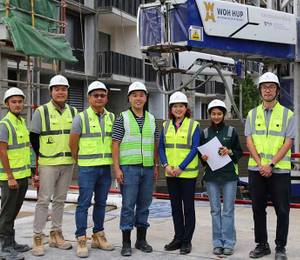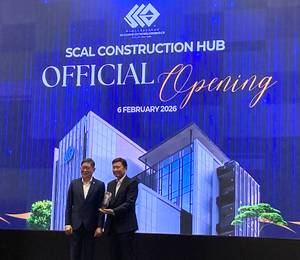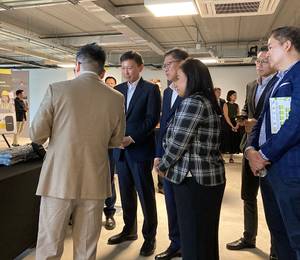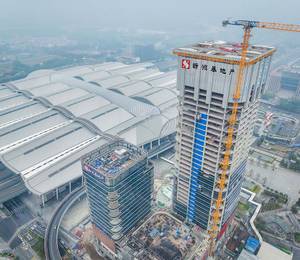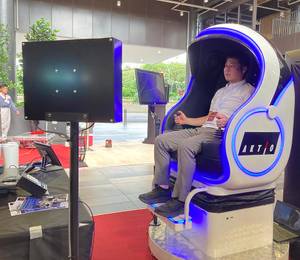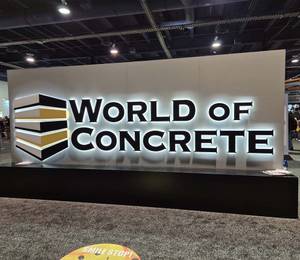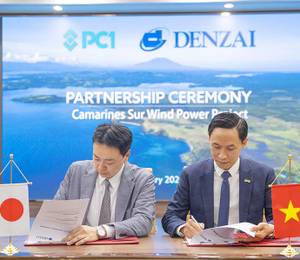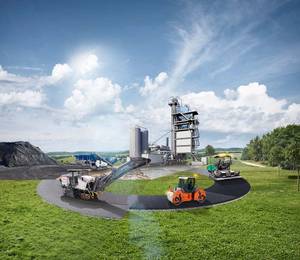Following the launch of Volvo Construction Equipment’s (Volvo CE) electric machines in Japan this past May, the first units are now at work. Among them is an ECR25 Electric compact excavator being used on a residential development in Osaka.
At the CSPI-Expo in Tokyo held in May 2023, Volvo CE unveiled two electric machines for the Japanese market. Just a few months later, the first units are already at work, delivering emissions-free performance on local jobsites.
One of the first projects in the country to take advantage of these electric machines is a new condominium construction underway in Osaka. The main contractor on the project is using an ECR25 Electric excavator rented from Nishio Holdings. The company was the first in the country to receive electric machines from Volvo CE and purchased them from local dealer Yamazaki Machinery, which is providing full sales and service support.
A representative from the contractor working on the Osaka project said, “We’ve already received significant positive feedback on the ECR25 from our operators at the construction site who love the reduced noise in their working enclosure and find the performance almost identical to diesel machines. It’s a stylish and modern-looking machine that is perfect for urban areas. In addition, as the electric machines are CO2 free, we are proud to be able to proactively contribute to reducing our carbon footprint in line with the Japanese government’s plans.”
The ECR25 Electric compact excavator is a 2.6-2.8 t capacity machine with a 22.3 kN breakout force. It has an onboard charger for general charging, an external quick charger (optional for indoor/outdoor specifications), and a 20-kWh battery array, allowing for three to four hours of work per charge.
“There is huge interest from customers in Japan for emissions-free, electric construction machines. We’re discussing multiple projects and applications and expect more machines to arrive in 2024. Our company is committed to reaching net-zero emissions by 2040 as part of our commitment to Science Based Targets,” said Shoji Isamu, head of market Japan at Volvo CE.
“In addition, the Japanese government is aiming to reduce carbon emissions by 60% by 2035. We believe that switching to zero-emissions machines can help many industries support the wider, national goals of Japan.”
Interested Japanese companies can register their interest via this online portal to get personalised information on the new machine.

